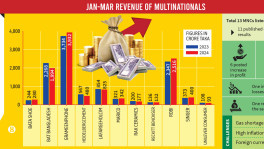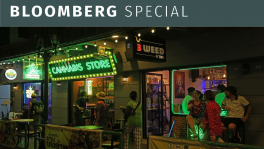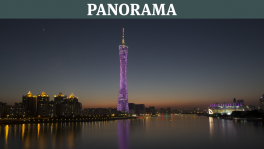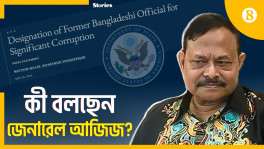Perspective Plan 2041: Golden Bengal as a label for nation branding
Over the next two decades, Bangladesh will experience an accelerated pace of change
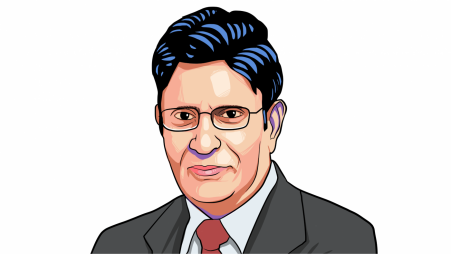
The government's Vision 2041, which is a continuation of Vision 2021, aims to carry the development journey of Bangladesh that Bangabandhu had dreamed of – to end absolute poverty and to graduate into a higher middle-income status by 2031 and a developed country by 2041.
The dream of Bangabandhu's "Sonar Bangla/Golden Bangladesh" is not a myth. Perspective Plan 2041 is the instrument to fast track the nation on the development path.
The economy that once was labelled as a "bottomless basket with no hope of survival" has now been globally perceived as a "development miracle". Our government's Vision 2021 and Vision 2041 are two key instruments that have contributed to the country's commendable progress over the past decade.
Eradicating poverty with a view to becoming a developed nation or a "Sonar Bangla" by 2041, Perspective Plan 2041 has been prepared to translate the policies and programmes into development strategies where the main beneficiary will be the people of Bangladesh and they will be the key driving force of growth and transformation.
Growth and equity are two most important factors for sustainable development of any country. Rapid growth will have to be balanced with an emphasis on equitable distribution of the benefits of growth for all, especially the poor and the vulnerable.
Harmonising this interdependent relation between growth and equity, we have prepared Vision 2041 for the accomplishment of that dream and a 20-year perspective plan to attain a pro-people, pro-planet, peaceful, sustainable Bangladesh where no one is left behind the goal.
Perspective Plan 2041 provides the roadmap for accelerated growth and lays down broad approaches for eradication of poverty, inequality, and human deprivation. In the past decade, we have had remarkable success when it comes to socio-economic development.
Over the next two decades, Bangladesh will experience an accelerated pace of change. For instance, Bangladesh will experience a rapid transformation in agriculture, trade and industry, education, healthcare, transportation and communication, etc.
While these goals are pursued with vigour, the Government will ensure that key natural resources like land, water, forestry, natural habitat and air are used in a manner that avoids their depletion and degradation.
Human civilisation is facing the catastrophic Covid-19 pandemic which has caused and is still causing unprecedented socio-economic consequences worldwide.
The Covid-19 pandemic has affected all countries irrespective of their development status. However, the prudent policy of the government to find the balance between lives and livelihoods ensured that we could absorb the shock. Because of the stimulus package of 14.69 billion dollars till date, which is around 4.4% of our GDP, Bangladesh economy could progress ahead.
In the financial year 2019-2020, because of the Covid-19 pandemic, our GDP growth rate was only 5.2%. Because of the various successful Government policies, in the last financial year, we achieved the growth rate of 6.1%, which is one of the highest in the world in this period. The expected growth rate for the year 2021-2022 is 7.2%.
The 8th and 9th Five Year plans will play an important role in implementing the Perspective Plan 2041. The 8th Five Year Plan of the government aligns with different social and economic targets that have been forecast in the second Perspective Plan 2021-41.
It covers the development aspirations of the country incorporating the targets of the Sustainable Development Goals. So, the Perspective Plan 2041 has the perfect synergy between the government priorities and SDGs. Bangladesh is on track in many of the targets of SDGs.
Bangladesh is one of the climate vulnerable countries. However, despite having multiple constraints, Bangladesh is the first LDC to establish a "Climate Change Trust Fund" from its own resources.
Every year, we ourselves spend about $5 billion on climate adaptation. We are following a low-carbon development path. Our National Solar Energy Action Plan 2021-2041 predicts generation of up to 40 Giga Watt of renewable energy by 2041.
As the second largest exporter of ready-made garments, we are exploring efficient options of circular fashion and textiles as part of the overall circular economy.
Our Delta Plan 2100, a 82-year sustainable development plan focuses on efficient use and preservation of water. The Delta Plan and the Perspective Plan 2041 has a common goal of making Bangladesh an environmentally sustainable nation.
As the president of the Climate Vulnerable Forum and the host to the South Asian office of Global Centre on Adaptation, we are promoting the interest of the vulnerable communities and locally led adaptation projects.
Let me also share with you that in spite of all the difficulties, remittance inflow was 10.87% higher in 2019-2020 than the previous year, even during the pandemic.
The Covid-19 situation of course affected Bangladesh's migrants, but the inflow of remittance did not stop.
Moreover, the migrant workers have already sent $20.67 billion of remittances up to April 2021 which is 13.6% more than the previous year's total remittance. The 2% incentives provided by the government for sending remittance in the legal channel had a strong influence on this trend.
As one of the major migrant sending countries in the world with around 12 million people in about 170 countries, Bangladesh receives more than $18 billion as remittances annually. The National Action Plan of National Social Security Strategy (NSSS) 2016-21 suggested keeping the social allowance programme as a continuous activity for migrant workers and their family members.
Additionally, it kept skill development programmes for youth and women as another key programme under the human development cluster. Bangladesh has also introduced mandatory life insurance for migrant workers since December 2019. These factors are an indication of Bangladesh's quest for development.
Given the performance of Bangladesh's economy in the recent past, present prevailing scenario and projections by the reputed international financial institutions, I can say that all indicate a stronger economic prospect for Bangladesh in the upcoming years. However, the future prosperity and economic growth of Bangladesh will be decided by some key issues. Priorities must be fixed by the sector that already contributes to the development of our country.
Let me touch on the issue of our excellent bilateral relation with Saudi Arabia. Saudi Arabia has been a trusted partner for Bangladesh since the establishment of our diplomatic relations. We need to enhance our image in Saudi Arabia and the labour centric cooperation also needs to be transformed into a comprehensive partnership where mutual economic interests will be the backbone of our cooperation mechanism.
Once we will be able to establish Golden Bengal as a brand, we will automatically be able to transform the basis of our cooperation from human resources to economy and trade.
I have learned that Saudi Arabia has reformed the business, economic and investment opportunities in the Kingdom. Many of our expatriates there could take this opportunity to become entrepreneurs there.
Bangladesh is a market of 165 million people. It has a strategic location between South and SouthEast Asia.
It also offers attractive investment opportunities for foreign investors including from Saudi Arabia. The Saudi side could tap into our public private partnership investment opportunity. We are expecting to sign a MoU very soon with the Saudi side, which will allow Saudi investors to invest under PPP.
Saudi investors could explore other opportunities here. The Bangladesh Investment Development Authority (Bida) will provide all necessary support for that.
In conclusion, let me flag out that a major shift is taking place in the world economy. However, to gain from this change, we have to prepare ourselves with skills, education, infrastructure, good governance and above all goodwill.
We have to work together in partnership and need to be fully prepared to overcome the challenges and to grip the opportunities ahead.
I am confident that through our collective efforts, strong coordination and hard work, we will be able to turn Bangladesh into Sonar Bangla as dreamed by the Father of Nation Bangabandhu Sheikh Mujibur Rahman.
Dr AK Abdul Momen is foreign minister of Bangladesh.


 Keep updated, follow The Business Standard's Google news channel
Keep updated, follow The Business Standard's Google news channel
